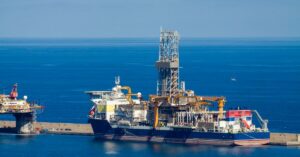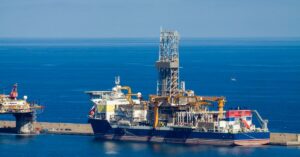
U.S. Navy Establishes Unmanned Surface Vessel Squadron Three At Naval Amphibious Base Coronado
May 21, 2024
Indian Seafarers Among The World’s Most Abandoned Crew For 2nd Consecutive Year In 2024
May 22, 2024

Rising sea levels threaten global oil shipments, which could risk energy security dependent on nations such as China, Japan and South Korea.
According to a recent study by the China Water Risk (CWR) think tank, melting ice and swelling seas could raise sea levels by several meters, drowning crucial oil ports and disrupting global oil traffic.
The report “Crude Awakening! Fast Rising Seas Threaten Seaborne Oil & Energy Security: Japan & South Korea” demonstrates the risk of flooding many of the world’s largest oil terminals.
A 2021 Intergovernmental Panel on Climate Change (IPCC) report predicted that average sea levels would rise by more than a meter by the end of the century, with a two-meter rise not ruled out.
According to CWR’s stress test on maritime infrastructure, a one-meter rise in sea levels is predicted to damage 12 of the top 15 tanker terminals.
This includes five Asia terminals, which could threaten up to 42% of global crude oil exports from Saudi Arabia, Russia, the United States, and the United Arab Emirates.
This would affect 45% of crude supplies to key importers, including China, the United States, South Korea, and the Netherlands.
Japan and South Korea, which import around three-quarters of their crude oil through vulnerable ports, may have their receiving ports impacted by increasing sea levels.
Debra Tan, CWR director and the lead author, highlights the importance of these countries taking the lead in transitioning away from oil and strengthening port infrastructure resilience.
Tan warned that their oil habit might destroy their futures if they were far from offering energy security.
According to the analysis, a one-meter rise in sea level may interrupt nearly half of worldwide crude exports and imports.
In contrast, a two-meter rise would have an even greater impact on critical terminals such as those in Suez and Said.
The consequences for energy and economic security are enormous, especially for Asian countries that rely significantly on seaborne oil imports.
CWR highlights the importance of addressing these hazards.
Rising sea levels are caused by warming oceans and faster-than-expected polar ice sheet losses.
With global temperatures continuing to rise, the possibility of a rise in fast sea level poses a severe threat to coastal communities and infrastructure.
The study calls for immediate action, encouraging governments, asset owners, banks, port operators, and energy dealers to prioritise sea-level rise assessments and port resilience.
With its large role in the global energy supply, Asia is well-positioned to lead the transition to renewables, electric vehicles, and lower reliance on petrochemicals.
The CWR analysis highlights the paradox that, while oil is considered a cornerstone of energy security, its ongoing usage worsens climate change, threatening the infrastructure supporting the global oil trade.
The report’s results emphasise the risks and opportunities for investing in robust infrastructure and transitioning to sustainable energy sources.
Reference: Reuters
Rising Sea Levels Threaten Global Oil Shipments, Recent Study Warns appeared first on Marine Insight – The Maritime Industry Guide
Source: Maritime Shipping News


